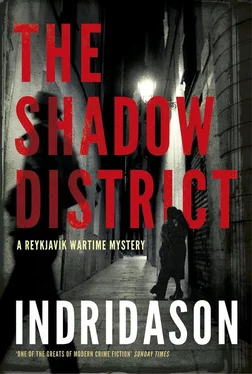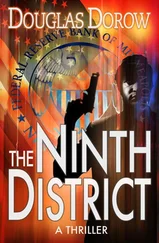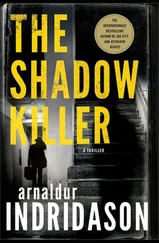‘May I ask if you’ve heard of the case?’
‘From the Second World War?’
‘Yes. A girl was murdered. Her name was Rósamunda.’
‘My family’s familiar with that case,’ said Benjamín. ‘But I don’t see what it has to do with you.’
‘I used to be a detective, though I’m officially retired now. But CID asked me to dig around for information on this man Thorson, or Stefán. I assume you’ll have seen the news — he was found dead in his flat and the police believe he was deliberately smothered.’
Benjamín nodded. ‘I saw the news.’
‘I’ve established that Thorson made a phone call to your Uncle Magnús in Borgarnes. What he learnt during their conversation would almost certainly have propelled him to visit your father next. This would have been only a couple of weeks ago. I’m almost sure Thorson came here to see him. Were you aware of the fact?’
‘No, I wasn’t.’
‘What about you yourself?’
‘Me?’
‘Did you meet Thorson?’
‘No.’
‘Are you sure?’
‘Sure? Are you calling me a liar?’
Konrád shrugged.
‘May I ask on whose authority you’re here?’ demanded Benjamín.
‘I’m assisting the police. If you’d like confirmation, you can ring CID and ask to speak to an inspector called Marta.’
‘Well, you could try talking to the staff here,’ said Benjamín, in a slightly more conciliatory tone. ‘There’s a chance they might remember the man, though I don’t recall having met him. Magnús hasn’t spoken to my father for decades, so I don’t know how reliable an informant you’ll find him. They broke off relations completely, you know, and I wouldn’t put it past Magnús to blacken my father’s name.’
‘Are you implying that Magnús was lying about your father?’
‘Frankly, I’d rather not discuss my family’s private affairs with a total stranger,’ said Benjamín. ‘Now, if you don’t mind, I’d like to be left in peace with my father.’
‘Of course,’ said Konrád, ‘I’m sorry to intrude. Just one last thing. You knew at once which case I was referring to when I mentioned Rósamunda. May I ask how come?’
‘If I tell you, will you leave us alone?’
‘Of course.’
‘Our immediate family was aware of the girl’s fate, though it didn’t spread much further,’ Benjamín said, making no attempt to hide his impatience. ‘The police were quick to track down her killer. His name was Jónatan and he was a friend of ours. The incident affected my family very badly, as you can imagine. To make matters worse, Jónatan died in police custody. Apparently he escaped and ran in front of a car. The whole business was very unfortunate. Both the fact that he killed the girl, obviously, and also the way he lost his life. My grandfather was an MP at the time and used his influence to hush the matter up. He spoke to the girl’s parents and made them see the unpleasantness it could stir up. After all, the facts weren’t in doubt; the perpetrator had been caught. In my grandfather’s view there was no call for our family to be dragged into the scandal.’
As Konrád listened it became clear to him why there was no record of the case in the archives. The police must have been very confident they’d got the right man for them to have colluded in a cover-up. Either that or the MP had sufficient clout to go over their heads and supress the inquiry.
‘I have reason to believe that Thorson had unearthed some new information about your father,’ said Konrád. ‘He was one of the investigating officers at the time, working with the military police, and could never forget the case, perhaps because he felt it had never been properly resolved. Are you by any chance familiar with the story of a girl called Hrund, who lived in the Öxarfjördur area?’
At that moment they heard a noise from the old man in the wheelchair and turned to look at him.
‘... ósamu...?’
They both stared at Hólmbert. His gaze remained fixed on the television, but it was clear that he was trying to say something. He appeared to be lost in a world of his own, completely oblivious to his son’s presence, let alone Konrád’s.
‘... ós... am... un...?’ he whispered hoarsely at the TV screen.
‘Dad, it’s me Benjamín, your son.’
Hólmbert didn’t react or shift his gaze from the television.
‘Hólmbert?’ tried Konrád. ‘Can you hear me?’
The old man sat motionless as if the two visitors had nothing to do with him.
‘What’s he trying to say?’ asked Konrád.
‘I haven’t the faintest idea. Look, you’d better go.’
‘Didn’t it sound to you like—?’
‘It could’ve been anything,’ interrupted Benjamín, his patience running out. ‘I’m asking you to leave him alone. It’s... I’m asking you to leave us alone.’ He went over and stood by the door. ‘Please, just go.’
Konrád decided to back down. ‘OK, no problem, I’m sorry to inconvenience you. I really didn’t mean to intrude.’ He went out into the corridor and heard the door swing to behind him. As he was leaving the nursing home, he took out his phone and rang Marta.
‘What now?’ she asked.
‘Have you still got those recordings from the CCTV cameras in the vicinity of Stefán Thórdarson’s flat?’
‘Yes, a whole pile of them. All bloody useless.’
‘Why useless?’
‘Because I don’t know what I’m looking for. They just show people coming and going, and I don’t know who any of them are.’
‘Let me have a look at them.’
‘Why? What have you found out?’
‘I’m not sure,’ said Konrád. ‘I’d need to check the CCTV footage. But, unlike you, at least I know what I’m looking for.’
‘Hurry up then,’ said Marta. ‘I was just about to head home.’
It wasn’t easy for Konrád to persuade Benjamín to meet him behind the National Theatre. Benjamín flatly refused at first, protesting that he didn’t have time for such nonsense and insisting that Konrád leave him and his family alone. Meeting behind the theatre was an absurd idea. He had no interest in Konrád’s melodramatic attempts to smear his family. What happened in the past belonged in the past. Rósamunda’s murder had been solved by the police seventy years ago; her killer had been caught, so he saw absolutely no reason to waste his time on wild conjectures and rumours.
Konrád countered that the matter concerned not only Rósamunda’s case but some new evidence that had come to light regarding Thorson’s recent demise. He reiterated that he would wait for Benjamín behind the theatre. There were a few details he wanted to run by him. If Benjamín didn’t show up, it would make no difference; the matter would progress to the next level, though Konrád’s part in it was finished.
‘Have you notified the police?’ asked Benjamín, after a weighty pause.
‘I’ve shared some of my findings,’ said Konrád, ‘but I’ve yet to give them my final report.’
At this, Benjamín retorted that he wanted nothing more to do with him and hung up. Konrád put his phone away. He sat in his car, peering into the doorway where Rósamunda had been found alone, discarded, back in the days when the world had been at war and the theatre had been an army depot. He was parked on Lindargata, a stone’s throw from Skuggasund. The streets were quiet. A black cat slunk across the road and darted into a nearby garden. A pair of lovers walked hand in hand along the pavement and disappeared in the direction of Arnarhóll.
Konrád got out of his car, walked over to the theatre and gazed up its obsidian-dashed walls, studying the decorative features designed to resemble pillars of columnar basalt, with their allusions to the country’s geology and centuries-old folklore. Within these thick, dark walls human dramas were staged for public entertainment; sorrow and joy were doled out in equal measure, just as they were in life itself. The difference being that when the curtain fell the performance was over and the audiences could go home. Whereas in the real world the drama never ended.
Читать дальше












